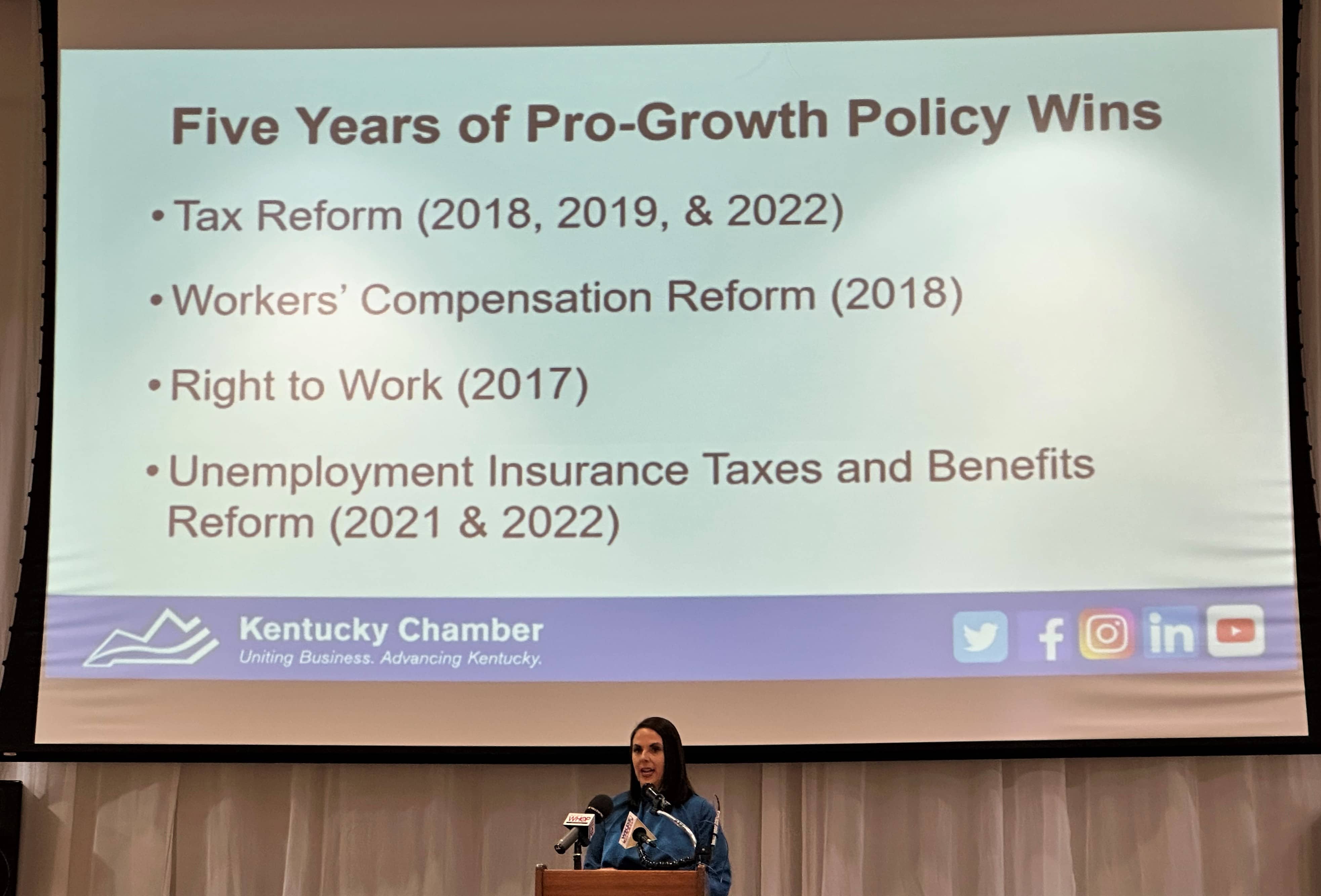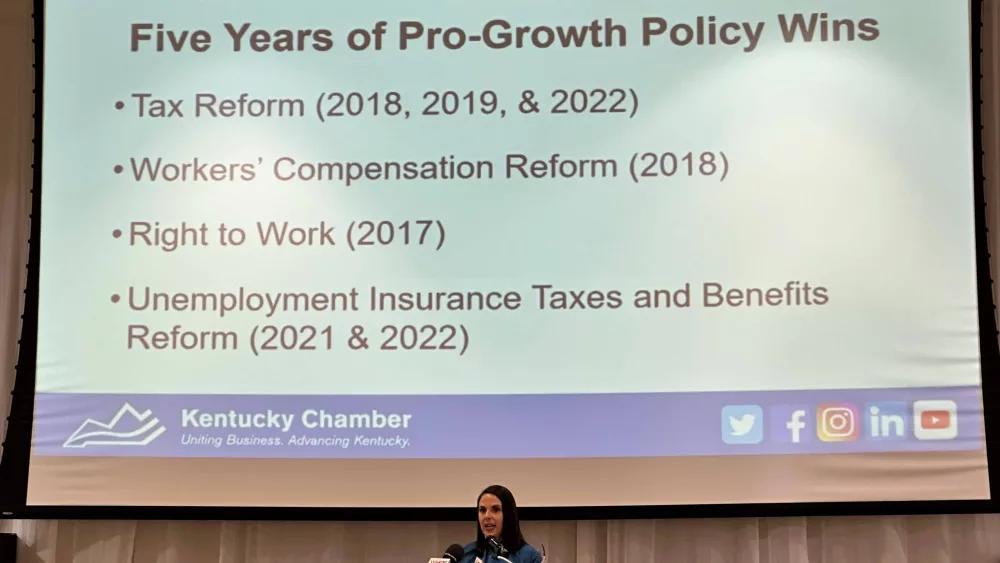
With a state economy “on fire” and the verbal warnings of a “looming national recession” escaping economist mouths on a weekly basis, how can both statements be true at the same time?
Kentucky Chamber of Commerce President & CEO Ashli Watts navigated this dichotomy during Tuesday’s “Eye Opener” Legislative Breakfast in Hopkinsville — noted both concepts easily co-exist in this post-COVID business climate.
However, she also noted that the Commonwealth and its leadership arms have taken several measured, pro-business steps in the last five years. Steps that have reformed taxes, saved companies money, enticed workers to return to the force, and helped provide child care to employees and their families.
The biggest of these, of course, is tax reform. In 2018, state income tax for Kentucky was at 6%. It’s now down to 5%, and Watts reminded that it’ll be down to 4.5% in January, 4% by 2023 — and eventually down to zero.
Because of Kentucky’s tax code changes, Watts added that Kentucky has improved from 37th in business tax climatology reports, to 18th.
Passed in 2018, Watts said worker’s comp reform immediately saved employers 25% in costs. A right-to-work bill passed in 2017 following the House flip from Democrat to Republican, which Watts said told investors that Kentucky was “open for business.”
In 2021, unemployment reform incentivized “re-skilling” and “up-skilling” the workforce, particularly with the shift in workforce participation. Watts stated that while 95% of 300,000 lost jobs have come back in Kentucky, only 55% of the state’s able workers have returned to punching a clock.
Unemployment is historically low, she said, but the mix of health care needs, a retiring generation of baby boomers and the nation’s seventh-lowest workforce participation have left Kentucky in somewhat of a bind — where two jobs are open for every one person.
Thus, she said, the need for unemployment reform. And it’ll be a focus when the General Assembly reconvenes in short session for 2023.
Watts said there were quantitative and qualitative data points to show Kentucky’s growing economy, which could potentially lessen the blow of any recession. In 2017, efforts from the General Assembly saved businesses more than a half billion; that total rose to $1 billion in 2020. And in 2017, Kentucky experienced $9.2 billion in private sector investment; that total was $11.2 billion in the last fiscal year.
As for child care assistance, Watts said appropriations are on the way beginning in June 2023, in which businesses can opt into a match program through the state in exchange for offering child care financial relief.
Watts also said she wished the message of “not every child needs college” came with a bit more nuance, because Kentucky’s employers often demand specific training, craft certificates, or a degree.
In other chamber news:
— For the sixth time in his 10 years of service, Sen. Whitney Westerfield was given a Louisville Slugger as a Kentucky Chamber “MVP,” for his tireless work on Senate Bill 90.
Roughly 10% of Kentucky’s legislators earn the award annually.
Other 2023 Priorities include:
— tax exemption on 100% of military retirement pay
— reforming local tax structures
— water and waste infrastructure for Commerce Park II
— fully-funded early childhood development, universal pre-K and kindergarten
— improving safety and mobility at Hwy. 107/1613 intersection
— the I-24 “Pembroke Connector,” CSX overpass, Hwy. 115 widening, Exit 89 upgrade
— installing I-169 signage




